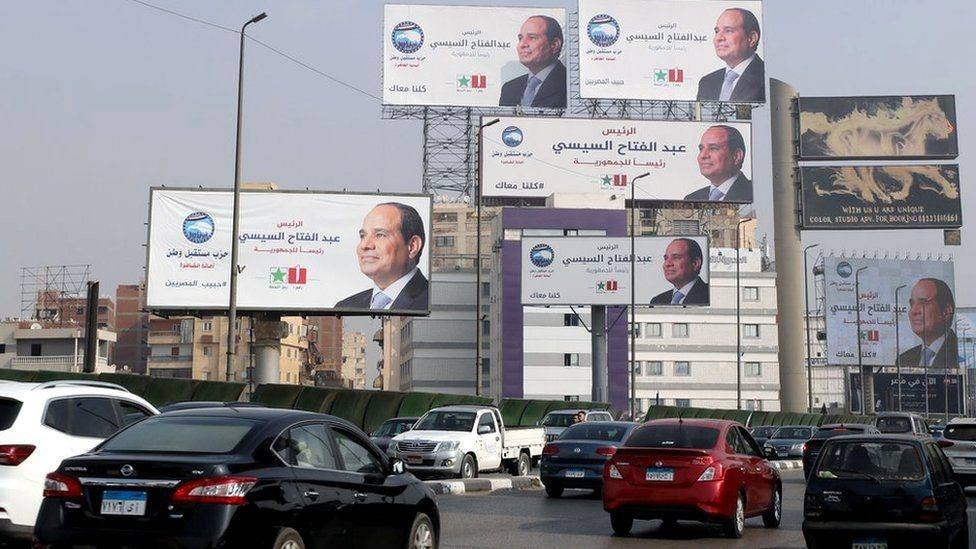Once hailed by many people as a saviour, Egypt’s strongman leader, Abdul Fattah al-Sisi, is now seen in a very different light.
Egyptians who took to the streets to cheer for the general-turned-president a decade ago are not as happy as they hoped they would be.
As Mr Sisi runs for his third consecutive term as president next week, a crumbling economy is top of most people’s list of complaints.
Nadia is one of those struggling to make ends meet as Mr Sisi’s government continues to implement what it calls “economic reforms”.
The 57-year-old widow and mother of six can barely make a living selling newspapers at a street-side kiosk.
In her small flat in one of Cairo’s crowded slums, Nadia tells me that last time she bought meat was three years ago. To her, life is becoming more unaffordable by the day.
“I am too scared to go to sleep sometimes, because I know the next morning prices will have gone up,” she says with a faint smile and eyes full of pain.
The latest official figures show that Egypt’s inflation rate in October was 38.5 per cent, a slight fall from the record 40.3 per cent reported the previous month.
These numbers are unheard of in the Arab world’s most populous country, and the real inflation rate experienced by ordinary people is often much worse than the government’s figure.
But as prices have risen, Nadia’s income has dropped.
More than a decade ago, she used to sell nearly 200 newspapers a day, but today it is barely 20.
Nadia says today cooking a meal costs between 300 and 500 Egyptian pounds (£7.70-£13; $9.70-16.20), but a few years ago, it was about a sixth of the price.
“Even fruit is too expensive,” she tells me.
In the past nine months, the Egyptian pound has lost more than 50 per cent of its value against the US dollar.
With the Egyptian economy heavily dependent on imports, the prices of basic commodities have skyrocketed beyond the reach of many households and a black market for foreign currency has flourished.
Nadia does not have much hope and is obviously apprehensive.

